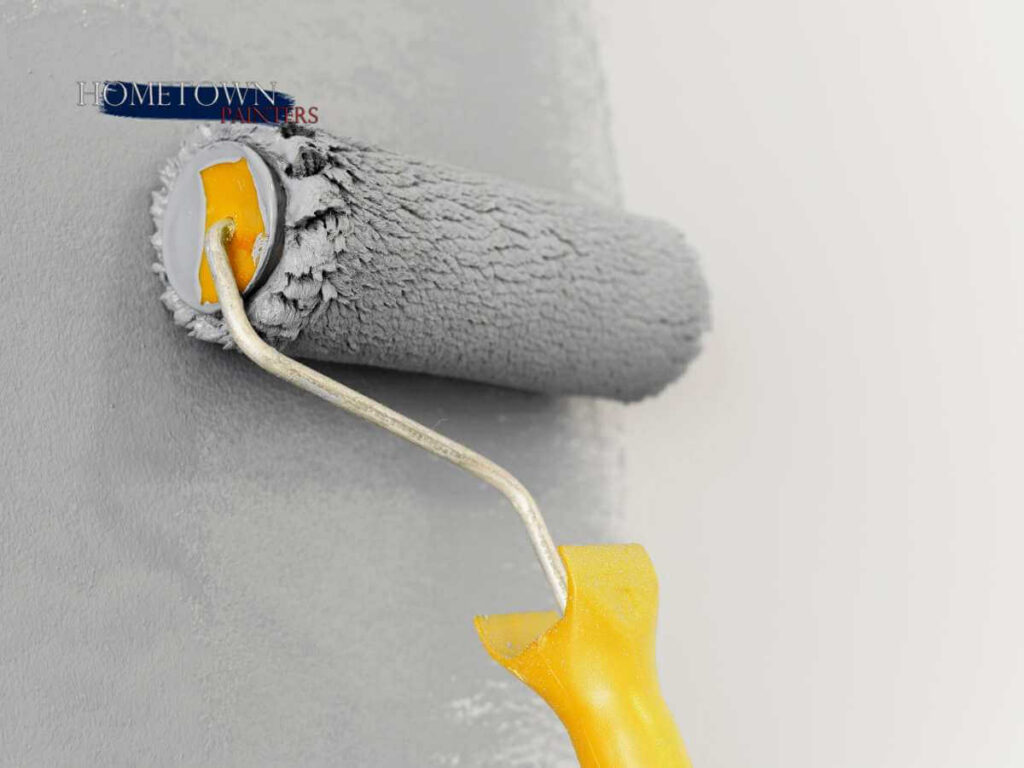Are you looking to give your home a fresh new look with a coat of paint? Choosing the best paint contractor can be a daunting task as there are many options to choose from. To ensure that you make the right decision, you need to be aware of the tips for choosing the best paint contractor. In this blog post, we will discuss the key points to consider when selecting a contractor for the job. We will cover topics such as their level of experience, cost, and quality of work. By the end of this post, you will have a better understanding of how to choose the best paint contractor and will have all of the information you need to make the best decision.
Researching Contractors
When selecting a painting contractor, it is essential to do proper research. According to the U.S. Small Business Administration (SBA), over 50% of small businesses fail within five years due to inadequate preparation and planning. Contractor research is the foundation for establishing a successful relationship between homeowner and paint contractor. As part of this process, homeowners should review relevant materials like contractor reviews, references, and quotes before making a decision about which paint contractor to hire. Homeowners must take their time researching contractors, as they are entrusting them with an important investment in their home’s appearance and value. Reviews and references can tell you a lot about the quality of a contractor’s or company’s work, and quotes can tell you about pricing structures and timelines that could affect the total cost of the project. With thorough research, homeowners can make informed decisions when looking for the best possible painting contracting services available.

Reviews And References
Once the research phase is complete, it’s time to evaluate reviews and references of potential painting contractors. You can find reviews online, on a contractor’s website, or through word of mouth from customers. It is important to read both positive and negative feedback when evaluating a painting contractor, as this will give an idea of how they operate in terms of quality assurance, communication, and other elements associated with their services. Additionally, if possible, contact past customers for more information about their experience working with said contractor. This could provide insight into whether they worked well with them during the project and if they would recommend them in the future. Contractor references should also always be checked to ensure that all necessary licenses are up-to-date and valid. In addition to making sure they have a license, you should ask a few questions about background checks on employees and the level of insurance coverage for any risks that might come with work being done on your property. By thoroughly researching each option before making a final decision you can rest assured that the best choice was made for your particular needs.
Obtaining Quotes
Searching for the right paint contractor is like going on a treasure hunt. To ensure that you find the most suitable one, it is important to get quotes from several contractors and compare them against each other. This will help you determine which contractor can provide quality work at an affordable price.
When obtaining quotes, make sure to ask detailed questions about the services they offer so you know exactly what to expect in terms of pricing and timeline. Additionally, be sure to request references or contact information if available. Also, double-check that all materials being used are certified by a reputable manufacturer; this will help verify their reliability and performance. Finally, take time to read customer reviews on websites such as Angie’s List or Yelp before making your final decision. Doing these steps will enable you to select the best possible painting contractor who meets both your needs and budget requirements.
Insurance and licensing requirements are essential when selecting a paint contractor.
Insurance And Licensing Requirements
When selecting a paint contractor, it is important to ensure that they are properly licensed and insured. Before hiring any contractor for a painting job, make sure to ask about their licensing and insurance requirements. It is essential that the contractor has all of the necessary licenses in order to perform the work legally and safely. Additionally, ask if they carry liability insurance which will cover any damages or injuries sustained while they are on site completing the project.
It is also important to verify with local authorities whether or not the contractor needs additional permits or certifications beyond what may be required by state law. If these regulations are not adhered to, there can be fines or other penalties imposed by the government. By verifying this information ahead of time, you can avoid delays due to non-compliance with laws and regulations governing your area. Taking these steps ensures that you have chosen an experienced professional who meets industry standards and legal obligations regarding safety and quality assurance.
Negotiating Terms
Negotiations are a necessary part of any painting contract, and it is important to understand the terms that will be binding upon both parties. To ensure that you have the best possible outcome for your project, careful consideration should be given to negotiating cost, length of contract, payment schedule, payment terms, and warranty coverage. It pays to do some research prior to entering into negotiations so that you know what the going rates are in your area for similar projects. Knowing this information can help put you in a better position when discussing costs with potential contractors.
In addition to cost considerations, make sure that all terms regarding length of contracts and warranties are clearly established upfront. Ask about specific details such as how long does each phase of work need to be completed before final payment is due? Will there be periodic payments or one lump sum at completion? Are there extra fees associated with any changes made during workflow? What type of warranty coverage will I receive if something needs repair after the job is finished? Asking questions like these helps establish trust between contractor and customer while also protecting both parties from future disputes related to money or quality assurance issues.

Scheduling And Payment Options
When it comes to scheduling and payment options, an experienced paint contractor should be able to provide a project timeline that outlines the various stages of the job. This includes when removal of existing finishes or wallpaper is necessary, as well as painting and any other services included in the scope of work. The timeline should also include estimated completion dates for each stage so that you can plan accordingly.
Payment terms will vary from one painter to another but typically require a deposit upon signing the contract and then progress payments throughout the course of the project. It’s important to inquire about accepted payment methods prior to signing your agreement with a contractor; this may include cash, check or credit card. Make sure all details are clearly outlined in writing before finalizing your agreement.
Finalizing The Agreement
Selecting the right contractor is like finding a great chef in a restaurant—it takes research and understanding of what you’re looking for. When it comes to finalizing an agreement with a painting contractor, there are several important considerations that must be taken into account before signing on the dotted line.
First and foremost, confirm all details regarding payment agreements such as total cost, deposit amounts, timelines for payment installments and any other associated costs. It is also essential to make sure that both parties have agreed upon expectations concerning the scope of work to be completed by the contractor so that these can be included in the contract prior to signing. Additionally, scheduling should be discussed as well; how soon will the job begin once contracts are signed? How long will it take for completion? It’s critical to ensure everyone knows when each stage of project completion should occur.
When everything has been accepted from both sides and all paperwork is ready to go, only then should both parties enter into a legally binding contract signing. This process ensures that both parties understand their responsibilities and agree to follow through with them until work completion is achieved.
Conclusion:
Choosing the right paint contractor is an essential part of any painting job. It can be a daunting task, but with careful research and attention to detail, it can be done successfully. Contractors should possess the necessary skills, experience and qualifications in order to deliver optimum results on time and within budget. When selecting a contractor, reviews and references should be checked thoroughly for customer satisfaction and quality of workmanship provided. Furthermore, obtaining quotes from multiple contractors will help ensure that you are getting the best value for your money. Insurance requirements need to be taken into consideration when signing contracts as well as negotiating terms such as payment schedules. Finally, once all details have been finalized, scheduling of services can begin knowing that both parties involved have agreed upon reasonable conditions for the job at hand. By following these steps one can rest assured that they are receiving exceptional service from a professional painter who is dedicated to providing top-notch services at competitive prices.
